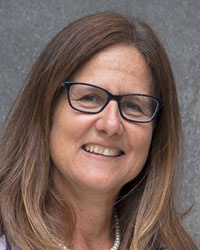Martine Collart Group

Project at a glance
Regulation of gene expression by the Ccr4-Not complex in the yeast S.cerevisiae
The projects of the Collart laboratory deal mostly with the study of one complex, the Ccr4-Not complex, conserved across the eukaryotic kingdom and a central but very complex regulator of gene expression. It controls gene expression at many stages, from mRNA synthesis to degradation of proteins.
The Collart laboratory studies this conserved and complex regulator in the yeast S.cerevisiae where powerful genetic tools can be combined with subsequent biochemical studies.
In yeast this complex consists of 9 subunits, Not1-5, Caf1, Caf40, Caf130 and Ccr4. Homologs of these subunits exist in most cases in all eukaryotes, and in all eukaryotes, 2 enzymatic activities are associated with the complex, a deadenylase and a ubiquitin ligase.
Many cellular functions have been clearly attributed to the Ccr4-Not complex in yeast or higher eukaryotes. The major role defined to date has been its contribution to mRNA metabolism, since the complex carries the major eukaryotic deadenylase catalyzing the initial and rate limiting step in RNA degradation. The Collart group has connected it to transcription by RNA polymerase II, and more recently their work has extended the role of the Ccr4-Not complex to nuclear surveillance and mRNA export.
This past year, studies from the Collart laboratory revealed the importance of the Ccr4-Not complex for the protein life cycle. Substrates of the Not4 RING E3 ligase are connected to the ribosome, namely a ribosomal protein Rps7A and a ribosome-associated chaperone, NAC, and the Ccr4-Not complex is associated with translating polysomes. Several subunits of the Ccr4-Not complex are necessary to avoid accumulation of aggregated proteins and for the assembly of the major protein degrading machine of the cell, the proteasome.
The working model of the Collart laboratory for the the Ccr4-Not complex is that the Ccr4-Not complex works as a "chaperone platform", regulating dynamic functional interactions between cellular partners participating to very diverse cellular functions. By interacting with translating ribosomes and chaperones, it has the ability to interact with newly synthesized proteins and "deliver" these proteins to their cellular partners in a functional way. The current projects of the Collart laboratory are targeted towards addressing this model.

